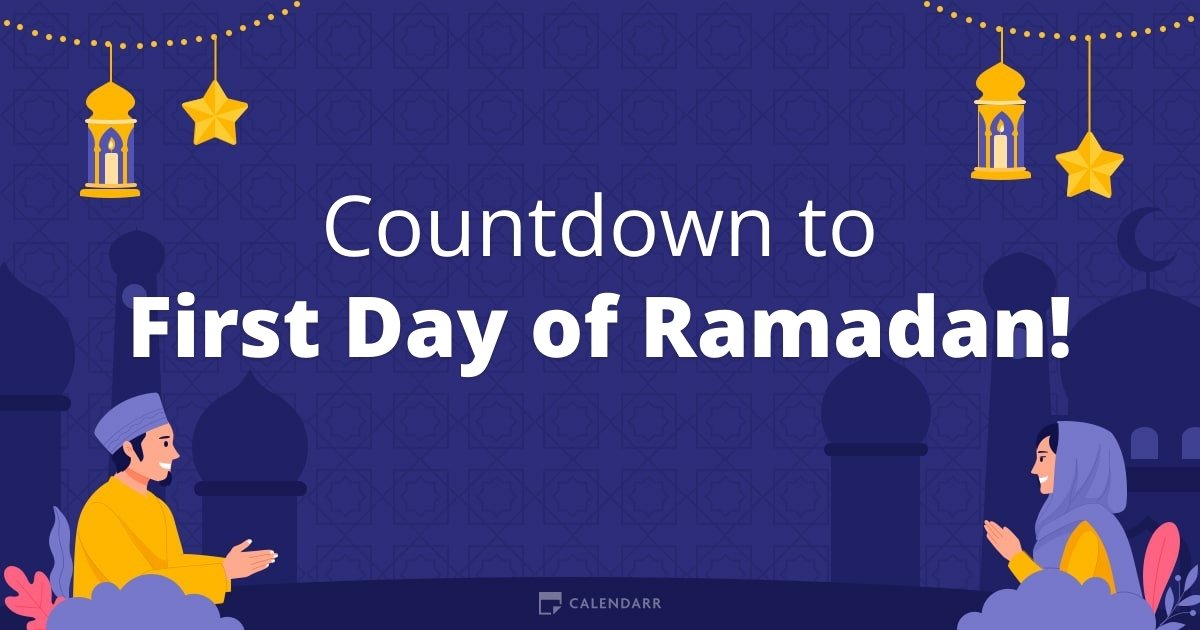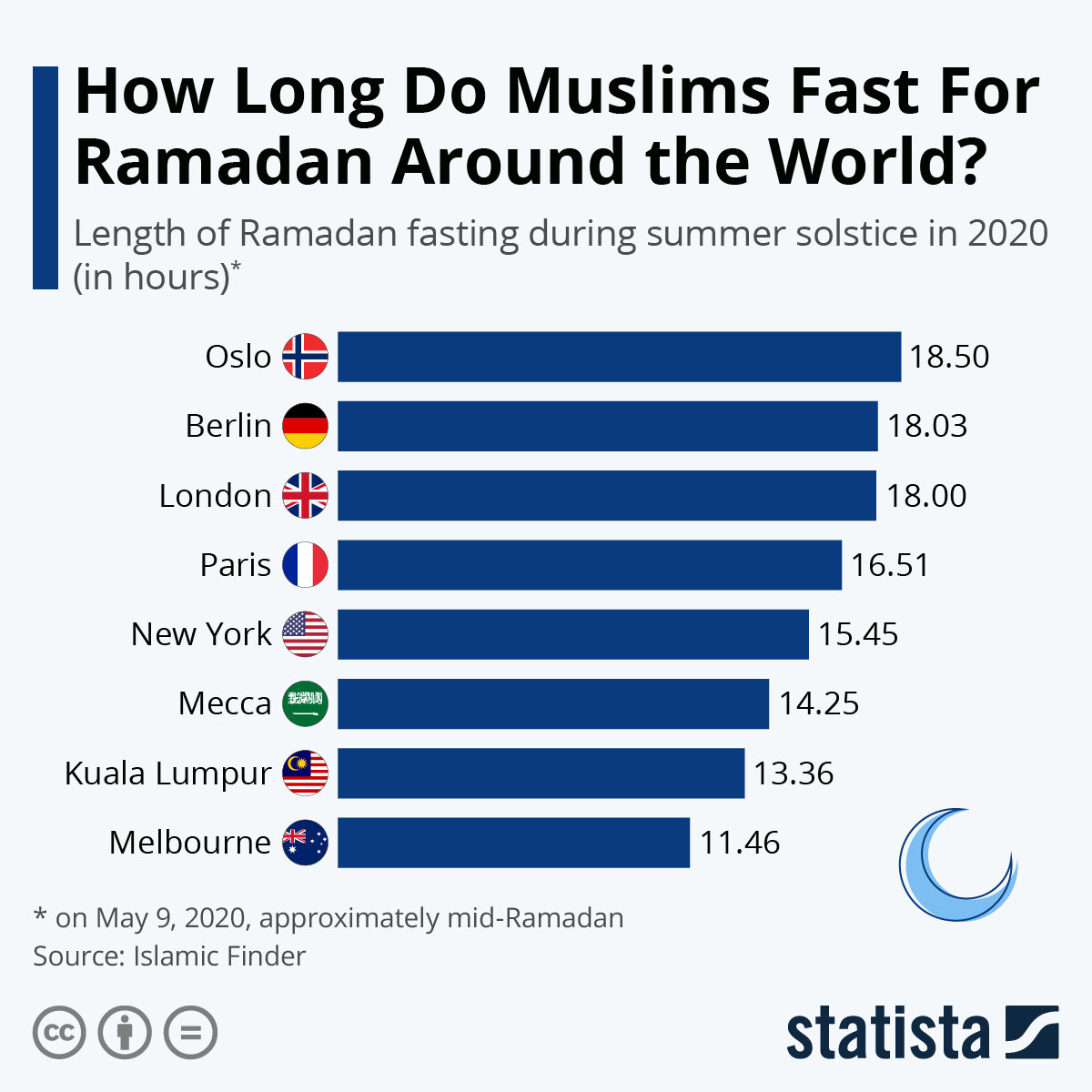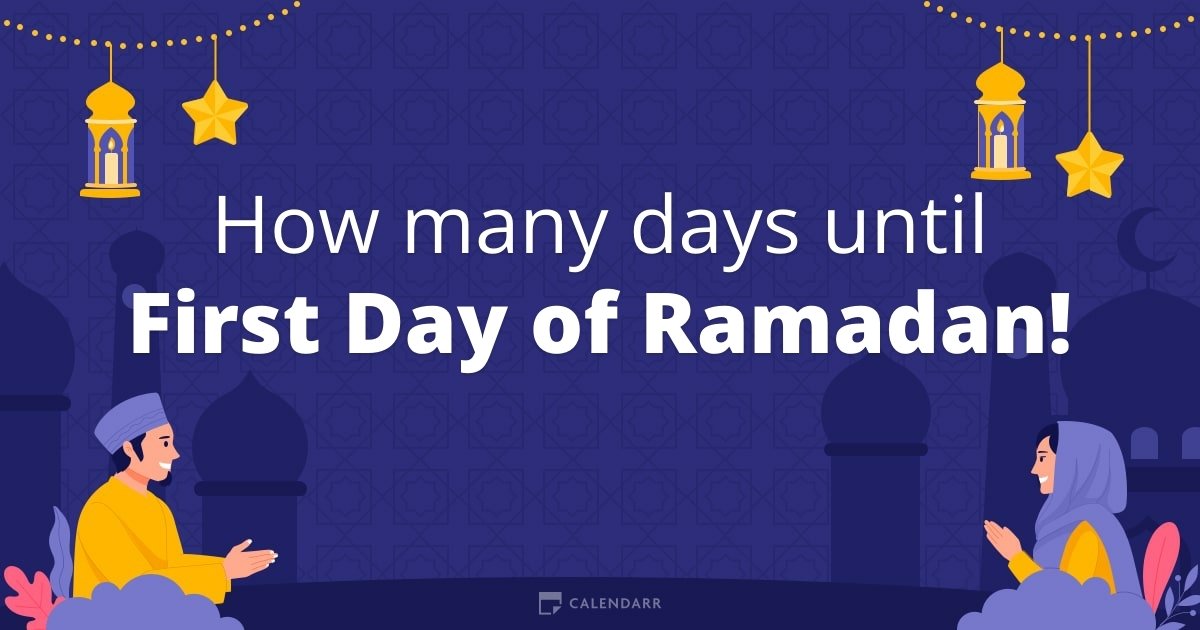Counting Down: How Many Days Until Ramadan?
The anticipation for Ramadan is something truly special for millions across the globe, a period of deep spiritual reflection and community connection. Knowing how many day until Ramadan begins is often a question that stirs excitement and prompts thoughtful preparation for this blessed month. People start to think about the spiritual journey ahead, planning for a time of intense devotion, self-improvement, and shared moments with loved ones.
This time of year, many hearts turn towards the lunar calendar, eager to mark the start of fasting, prayer, and giving. It's a period that invites a unique kind of readiness, both in spirit and in daily life. You know, it's almost like preparing for a very significant annual gathering, where every detail matters.
So, if you're wondering just how long you have to get ready, or perhaps you're simply curious about this important observance, you're certainly not alone. This article aims to shed some light on the countdown, helping you to understand the timeline and what makes this period so meaningful for so very many people.
- Overtime Megan Leaked Nudes.linkmaz
- Lisa Boothe Husband.linkmaz
- Katmovies 18.linkmaz
- Xxnnxx.linkmaz
- Filmyzilla Com Movie.linkmaz
Table of Contents
- Counting Down to Ramadan: The Current Picture
- The Deep Significance of Ramadan
- Preparing Your Heart and Home
- The Meaning of "Many" Days
- Common Questions About Ramadan (People Also Ask)
Counting Down to Ramadan: The Current Picture
As of November 1, 2024, people are beginning to look forward to Ramadan 2025. This very special month is expected to begin around February 28, 2025, though this date is always subject to the sighting of the new moon. So, if we consider this estimate, we are looking at approximately 119 days until the start of this blessed period. This number, you know, can feel quite substantial, giving everyone ample time to prepare.
Understanding the Lunar Calendar
The Islamic calendar, known as the Hijri calendar, operates on lunar cycles, which is quite different from the solar-based Gregorian calendar most of the world uses. Each month in the Hijri calendar begins with the confirmed sighting of the new crescent moon. This means that the exact start date of Ramadan, and indeed all Islamic months, can vary by a day or two depending on geographical location and the specific criteria used for moon sighting. For instance, some communities rely on local moon sightings, while others follow global sightings or astronomical calculations. This variability, in a way, adds a unique element of anticipation and community observation. It's a practice that connects believers directly to the natural world and the divine signs within it. This reliance on lunar observation, honestly, is a deeply rooted tradition that has been followed for centuries, linking contemporary practice to historical precedent. It means that while estimates are helpful, the final confirmation always comes from observing the sky, which is a rather beautiful aspect of the faith.
Why the Date Shifts Annually
Because the Hijri calendar is lunar, its months are shorter than those of the Gregorian calendar. A lunar year has about 354 or 355 days, which is roughly 10 to 11 days fewer than a solar year. This difference means that Ramadan, and all other Islamic months, gradually shift earlier in the Gregorian calendar each year. For example, if Ramadan starts on a certain date this year, it will begin approximately 10 to 11 days earlier next year. This continuous shift means that over time, Ramadan will occur in all seasons, allowing different communities around the world to experience fasting in varying climates and daylight hours. This natural progression, you know, ensures that the spiritual experience of Ramadan is diverse and cyclical, offering unique challenges and blessings depending on when it falls. It's a constant reminder of the passage of time and the cyclical nature of life, which is a pretty profound thought.
- Andie Elle Leak.linkmaz
- Burger King Plane Guy Name.linkmaz
- Judy Warren.linkmaz
- Celebrity Viral Mms Porn.linkmaz
- Cinasworldx Leaks Unveiling The Truth Behind The Controversy.linkmaz
The Deep Significance of Ramadan
Ramadan is far more than just a period of fasting; it's a profound time for spiritual growth, personal reflection, and strengthening one's connection with the Divine. It's a month dedicated to intense worship, self-discipline, and community solidarity. People often speak of the unique spiritual atmosphere that descends during Ramadan, a feeling of peace and heightened awareness that permeates daily life. This period, too, is a chance for many to reset their priorities, focusing less on worldly distractions and more on inner peace and righteousness. It's a time when individuals collectively strive for betterment, which is actually quite inspiring to witness.
Fasting: More Than Just Abstinence
The core practice of Ramadan is fasting from dawn until sunset, which involves abstaining from food, drink, and other physical needs. However, the meaning of fasting goes much deeper than just physical deprivation. It's a spiritual exercise designed to cultivate patience, self-control, and empathy for those less fortunate. When someone experiences hunger and thirst, they can, in a way, better understand the struggles of the poor and needy. This fosters a sense of gratitude for blessings often taken for granted. Fasting also serves as a means of purification, allowing individuals to cleanse their bodies and souls, breaking bad habits and developing healthier routines. It is, you know, a powerful tool for developing discipline, not just in eating habits, but in all aspects of life. It's a period where one learns to master their desires, which is a pretty big deal for personal growth.
Prayer and Reflection
During Ramadan, there is a significant increase in prayer and devotion. Muslims strive to read the entire Quran, often reciting portions of it each night in special congregational prayers known as Taraweeh. These nightly prayers are a central part of the Ramadan experience, bringing communities together in mosques around the world. Beyond formal prayers, the month encourages personal reflection, contemplation, and remembrance of God. Many people spend extra time in quiet meditation, making supplications, and seeking forgiveness. This heightened focus on prayer, you know, helps to strengthen the spiritual bond and brings a deep sense of peace. It's a time when hearts feel more open to divine guidance, and minds are more attuned to spiritual truths, which is quite a beautiful thing.
Giving Back to the Community
Charity and generosity are emphasized greatly during Ramadan. Muslims are encouraged to increase their acts of kindness, share meals, and give to those in need. The concept of Zakat al-Fitr, a mandatory charity given before Eid al-Fitr (the celebration marking the end of Ramadan), ensures that even the less fortunate can celebrate the holiday. Beyond formal charity, people often share food with neighbors, host Iftar (breaking fast) dinners, and volunteer their time for various causes. This spirit of giving, you know, strengthens community bonds and promotes a sense of collective responsibility. It's a time when empathy flourishes, and people genuinely try to uplift one another, which is very much at the heart of the month's spirit. Learn more about charity and community support on our site.
Preparing Your Heart and Home
As the countdown to Ramadan continues, many people begin to prepare both their inner selves and their physical surroundings for the blessed month. This preparation isn't just about stocking up on food for Suhoor (pre-dawn meal) and Iftar (breaking fast); it's about cultivating a mindset of readiness and spiritual openness. It's a bit like getting ready for a very important guest to arrive, making sure everything is just right. This period of preparation, you know, helps to set the tone for a truly transformative Ramadan experience.
Physical and Mental Readiness
Preparing physically for Ramadan involves adjusting one's eating and sleeping patterns to ease into the fasting routine. Gradually reducing caffeine intake, ensuring proper hydration, and planning balanced meals for Suhoor and Iftar can make the transition smoother. It's also wise to get adequate rest, as the altered schedule can be tiring initially. Mentally, preparation involves setting intentions for the month, identifying specific spiritual goals, and perhaps reflecting on past Ramadans to see where improvements can be made. Some people, too, begin reading the Quran more regularly or listening to religious lectures to get into the spiritual frame of mind. This kind of thoughtful preparation, you know, helps to ensure that the body and mind are aligned for the demands and blessings of the month, which is quite important for a fulfilling experience.
Community Engagement
Ramadan is a deeply communal experience, and preparing for it often involves connecting with family, friends, and local mosques. Many communities organize pre-Ramadan gatherings, lectures, or workshops to share knowledge and build excitement for the month ahead. Planning Iftar gatherings, deciding on collective charity projects, or simply coordinating schedules with loved ones for shared prayers can strengthen community bonds. This collective anticipation, you know, creates a supportive environment where everyone encourages each other in their spiritual journey. It's a wonderful way to foster a sense of belonging and shared purpose, which is actually very heartwarming to see. You can also find more resources on community engagement during special times.
The Meaning of "Many" Days
When we ask "how many day until Ramadan," the word "many" feels very appropriate, even if we can give an approximate number. The meaning of many, as a general term, refers to a large but indefinite number. It suggests that there is a significant or considerable quantity of something. In the context of the days leading up to Ramadan, "many" certainly fits because, for most of the year, the number of days until it arrives is indeed large. It indicates a plural or multiple existence of something, suggesting that there is a significant or considerable quantity of. This usage is common when we are talking about a large number of people or things, just as we would say, "I don't think many people would argue with that."
Why "Many" Fits the Ramadan Countdown
The phrase "how many day until Ramadan" naturally uses "many" because the period of waiting is often substantial. We use "many" to refer to a large number of something countable, and days are certainly countable units. Even when we give a precise number, like "approximately 119 days," the underlying sentiment is that it's a considerable span of time. We most commonly use "many" in questions, just like this one, and in negative sentences, so it fits the inquiry perfectly. For example, you might hear someone say, "Not many films are made in Finland," highlighting a small quantity, but here, with Ramadan, it points to a large one. "Many," in a way, helps to convey the sheer scale of the wait, especially when it's still months away. It implies a large number of persons or things, and in this case, a large number of days. The term "many" also suggests a quantity that is not easily grasped in its entirety, reinforcing the idea of a period that stretches out before us. It's used only with the plural of countable nouns, and "days" is certainly a plural countable noun. Its counterpart used with uncountable nouns is "much," but here, "many" is just right. So, it's about amounting to or consisting of a large indefinite number, which truly describes the long stretch of time before Ramadan graces us with its presence. It suggests a presence or succession of a large number of units, making "many" a popular and common word for this idea.
Common Questions About Ramadan (People Also Ask)
How Long Does Ramadan Typically Last?
Ramadan lasts for either 29 or 30 days, depending on the sighting of the new moon that marks the beginning of the next Islamic month, Shawwal. The end of Ramadan is celebrated with Eid al-Fitr, a joyful festival that includes special prayers, feasting, and gift-giving. So, you know, the duration is quite consistent, always around a month, which is a significant period for spiritual focus.
What is the Purpose of Fasting in Ramadan?
The primary purpose of fasting in Ramadan is to foster spiritual growth, self-discipline, and a deeper connection with God. It's a time for introspection, purification of the soul, and developing empathy for the less fortunate. Fasting is also seen as a way to express gratitude for blessings and to seek forgiveness for sins. It's a practice that, you know, helps individuals to gain control over their desires and to focus on their spiritual well-being, which is very important for many believers.
Is Ramadan the Same Date Every Year?
No, Ramadan does not fall on the same date every year in the Gregorian calendar. Because the Islamic calendar is lunar, its months are shorter than those of the solar-based Gregorian calendar. This means that Ramadan shifts approximately 10 to 11 days earlier each year in the Gregorian calendar. This gradual shift ensures that Ramadan occurs in all seasons over a period of about 33 years, offering a diverse experience for Muslims around the world. For current estimates, you might check a reliable source like Al Jazeera's Ramadan section.
- Jameliz Benitez Smith Onlyfans Leaks.linkmaz
- Aditi Mistry Live.linkmaz
- Cheyenne Swenson Nude.linkmaz
- Sone 436 Video.linkmaz
- Girth Master And Mia Z A Deep Dive Into Their Journey And Impact.linkmaz

Countdown to First Day of Ramadan - Calendarr

How Many Day Until Ramadan 2025 - Orel Janeczka

How many days until First Day of Ramadan - Calendarr